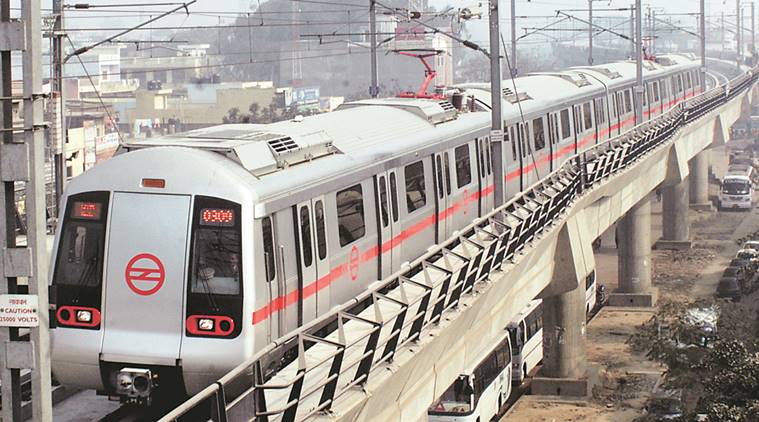According to a study conducted by the Centre of Science and Environment, Delhi Metro received nearly 32 per cent less than the number of daily passengers it had hoped to serve this year. The reports suggested that due to the fare hike, there was a sudden drop in ridership, of approximately 4.2 lakh passengers in 2018 as compared to the previous year.
In the two-day international conclave, CSE on Tuesday highlighted the state of urban transport systems around the world. Speaking of the Delhi metro, experts claimed that it was the second most unaffordable transport network in the world after Hanoi in Vietnam.
The study revealed that no commuter should be spending more than 15% of the income on any mode of transport. In case of lower income groups, the share should not be over 10%. However, a middle-income commuter of the Delhi Metro on an average spends 19.5% of her income on travel.
The calculations are based on the fourth Fare Fixation Committee (FFC) report for the Delhi Metro that showed that 30% of Delhi’s commuters are within the monthly group of Rs 20,000. In case of the economically weaker sections, this percentage share increases to 22% of their income.
Speaking on the services and fares of Delhi metro, Gautam Patel, the principal consultant at Clean Air and Sustainable Mobility at CSE, said: “There is no doubt that the quality of services provided by the Delhi Metro is good but the fares need to be kept in mind too.”
Citing an example, Patel told that an unskilled labourer in Delhi earning a minimum daily wage of Rs 534 on an average spends Rs 80 (15%) out of her income on transport. As per CSE’s calculations, she would spend around 8% of her income if she travels in a non-air-conditioned public bus, 14% in an air-conditioned bus, and 22% travelling in Delhi Metro.
The Delhi Metro Rail Corporation (DMRC) defended these fare revisions, saying these were revised after a gap of nine years, during which there was an increase of almost 90% in power tariffs and other input costs.
Also Read:
Link car, 2-wheeler sale to income to harness vehicular population and increase tax revenue
Steep hike in fares will kill Delhi Metro: CM Kejriwal
Air fares in India cheaper than auto-rickshaw ride: Jayant Sinha
















